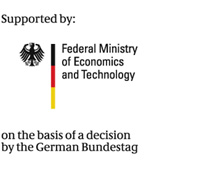Anti-EBV (VCA)
Epstein-Barr virus (EBV) is the cause of infectious mononucleosis (glandular fever, kissing disease). In the early stage of the disease, IgM and IgG antibodies against VCA are successively detectable. About three weeks after the onset of symptoms, the maximum concentration of IgM antibodies against the VCA peptide is attained; the highest concentration of VCA IgG antibodies is reached after about six weeks. This high concentration of VCA IgG antibodies remains throughout the life of the patient.
Anti-EBV (VCA) IgG
Anti-EBV (VCA) IgG is an ELISA-based, automated, in-vitro test system for the quantitative determination of IgG antibodies against Epstein-Barr virus viral capsid antigen (VCA) in human serum or plasma.
Specifications
| Product Number |
ORG 901G |
| Tests | 24 Alegria® strips |
| Calibration | internal |
| Calculation | quantitative |
| Range | 0 - 400 U/ml |
| Cut-off | 25 U/ml |
| Coating |
EBV viral capsid peptide (VCAp18) (recombinant) , EBV viral capsid peptide (VCAp23) (recombinant) |
|
|
|
Instruction for Use Revision 5. Earlier versions and additional languages can be found in the document archive.
|
Anti-EBV (VCA) IgM Abs.
Anti-EBV (VCA) IgM Abs. is an ELISA-based, automated, in-vitro test system for the quantitative determination of IgM antibodies against Epstein-Barr virus viral capsid antigen (VCA) in human serum or plasma.
The Anti-EBV (VCA) IgM Abs. (ORG 901MX) test kit test is equipped with the special ORGENTEC rheumatoid factor absorbent. This reagent absorbs any rheumatoid factors that may be present during sample processing in the Alegria® instrument, making separate preparation of the serum sample unnecessary.
Specifications
| Product Number |
ORG 901MX |
| Tests | 24 Alegria® strips |
| Calibration | internal |
| Calculation | quantitative |
| Range | 0 - 200 U/ml |
| Cut-off | 25 U/ml |
| Coating |
EBV viral capsid peptide (VCAp18) (recombinant) |
|
|
|
Instruction for Use Revision 5. Earlier versions and additional languages can be found in the document archive.
|

